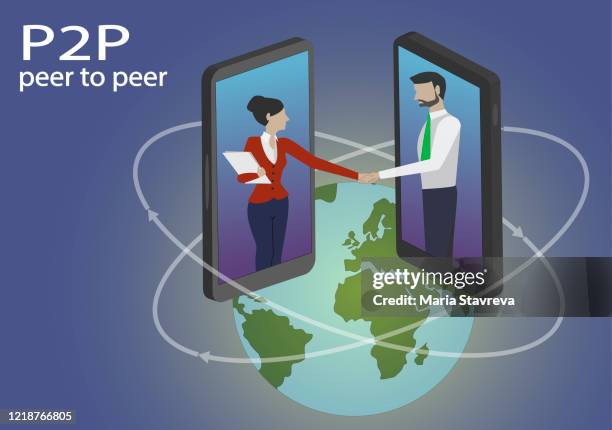OPPORTUNITIES
How to Make Money While Sleeping

Making (Make) money while sleeping is a dream come true for many Nigerians. It may seem like a myth, but it’s a reality for those who have mastered the art of passive income.
Passive income is earnings that require little to no effort to maintain, allowing you to generate revenue while you sleep. In this essay, we’ll explore various ways to make money while sleeping, using examples of Nigerians who have succeeded in these areas.
Investing in Dividend-Paying Stocks
Dividend-paying stocks are shares in companies that distribute a portion of their profits to shareholders. By investing in these stocks, you can earn a regular stream of income without actively working for it.

For example, Mr. John from Lagos invested in Nigerian Breweries Plc and Guinness Nigeria Plc, earning him a steady dividend income. He uses the dividends to pay for his children’s education and fund his retirement.
Real Estate Investment Trusts (REITs)
REITs allow individuals to invest in real estate without directly managing properties. You can earn rental income without the hands-on work, making it a passive income stream. For instance, Mrs. Adaeze from Abuja invested in UPDC REIT, earning her rental income without the hassle of managing properties. She uses the income to fund her business ventures.
Peer-to-Peer Lending
Peer-to-peer lending platforms connect borrowers with investors. By lending money to individuals or small businesses, you can earn interest on your investment.
Peer-to-peer lending companies often offer their services online, and attempt to operate with lower overhead and provide their services more cheaply than traditional financial institutions.

As a result, lenders can earn higher returns compared to savings and investment products offered by banks, while borrowers can borrow money at lower interest rates, even after the P2P lending company has taken a fee for providing the match-making platform and credit checking the borrower. There is the risk of the borrower defaulting on the loans taken out from peer-lending websites.
Peer-to-peer fundraising encourages supporters of a charity or non-profit organisation to individually raise money.
It’s a subcategory of crowdfunding. Instead of having one main crowdfunding page where everybody donates, people can have multiple individual fundraising pages with peer-to-peer fundraising, which the individual people will share with their own networks.
Also known as crowdlending, many peer-to-peer loans are unsecured personal loans, though some of the largest amounts are lent to businesses. Secured loans are sometimes offered by using luxury assets such as jewelry, watches, vintage cars, fine art, buildings, aircraft, and other business assets as collateral. They are made to an individual, company or charity. Other forms of peer-to-peer lending include student loans, commercial and real estate loans, payday loans, as well as secured business loans, leasing, and factoring.
The interest rates can be set by lenders who compete for the lowest rate on the reverse auction model or fixed by the intermediary company on the basis of an analysis of the borrower’s credit. The lender’s investment in the loan is not normally protected by any government guarantee. On some services, lenders mitigate the risk of bad debt by choosing which borrowers to lend to, and mitigate total risk by diversifying their investments among different borrowers.
The lending intermediaries are for-profit businesses; they generate revenue by collecting a one-time fee on funded loans from borrowers and by assessing a loan servicing fee to investors (tax-disadvantaged in the UK vs charging borrowers) or borrowers (either a fixed amount annually or a percentage of the loan amount). Compared to stock markets, peer-to-peer lending tends to have both less volatility and less liquidity.
Platforms like Paylater and Branch offer returns ranging from 5-7%. Mr. Emmanuel from Port Harcourt lent money through Paylater and earned interest on his investment. He uses the interest to fund his travels.
Renting Out a Spare Room on Airbnb
If you have an extra room in your home, consider renting it out on Airbnb. Set your schedule and rates, and let the platform handle the bookings. For example, Mrs. Nneoma from Enugu rents out her spare room on Airbnb, earning her passive income from hosting travelers. She uses the income to fund her charity work.
Creating and Selling an Online Course
Share your expertise by creating an online course on platforms like Udemy, Teachable, or Skillshare. Once you’ve created the course, you can sell it and earn passive income from royalties. Mr. Olawale from Ibadan created an online course on digital marketing, earning him passive income from sales. He uses the income to fund his business expansion.
Affiliate Marketing
Promote products or services from other companies and earn a commission for each sale made through your unique referral link. Choose products you believe in and share them with your audience. For example, Mrs. Chidinma from Lagos promotes beauty products from a local company and earns a commission for each sale made through her referral link. She uses the income to fund her fashion business.
Creating a Mobile App or Game
Develop a mobile app or game that solves a problem or provides entertainment. Sell it on app stores and earn passive income from sales and in-app purchases. Mr. Chinedu from Abuja developed a mobile game that became a bestseller, earning him passive income from sales and in-app purchases. He uses the income to fund his tech startup.
Investing in Index Funds or ETFs
Index funds and ETFs track a specific market index, like the Nigerian Stock Exchange (NSE) Index. By investing in these funds, you’ll own a diversified portfolio of stocks, generating passive income through dividends and interest. Mrs. Uche from Port Harcourt invested in the Nigerian Stock Exchange Index Fund, earning her passive income through dividends and interest. She uses the income to fund her retirement.
Creating an Ebook or Book
Write an ebook or book and self-publish it on platforms like Amazon Kindle Direct Publishing or Okadabooks. Earn passive income from book sales and royalties. Mr. Okechukwu from Enugu wrote an ebook on entrepreneurship, earning him passive income from sales and royalties. He uses the income to fund his business mentorship programs.
Making money while sleeping is achievable through various passive income streams. Nigerians can invest in dividend-paying stocks, REITs, and peer-to-peer lending. Rent out a spare room on Airbnb, create and sell online courses, and explore affiliate marketing.
Develop a mobile app or game, invest in index funds or ETFs, and write an ebook or book.
With these strategies, Nigerians can generate revenue while they sleep, achieving financial freedom and peace of mind. By leveraging these passive income streams, Nigerians can build wealth, pursue their passions, and create a better future for themselves and their families (Nigerians).
Discover more from Asiwaju Media
Subscribe to get the latest posts sent to your email.

-

 POLITICS5 days ago
POLITICS5 days agoChinedu Ogah Decamps from APC to ADC, Joins Coalition—Video Claims Surface Online
-

 NEWS6 days ago
NEWS6 days agoEbonyi Village Lights Up with Self-Funded Electrification , Plans Road Construction
-

 POLITICS7 days ago
POLITICS7 days agoADC Targets Five Governors as More PDP, APC Leaders Join Opposition Coalition
-

 POLITICS6 days ago
POLITICS6 days agoADC Ebonyi Welcomes Massive Influx of New Members
-

 POLITICS2 days ago
POLITICS2 days agoADC Chieftain Alleges Plot by APC to Hijack Party in Ebonyi, Vows Resistance
-

 ENTERTAINMENT1 day ago
ENTERTAINMENT1 day agoIyabo Ojo Addresses Police Invitation, Threats And Fire Outbreak, Clarifies Position On Mohbad’s Death
-

 SPORTS6 days ago
SPORTS6 days agoNeymar And Bruna Biancardi Welcome 4th Child Into Their Growing Family
-

 NEWS7 days ago
NEWS7 days agoNigerian Man Captured Fighting For Russia After Serving Five Months On Battlefield
-

 POLITICS7 days ago
POLITICS7 days agoEx-Jigawa Governor Lamido Says He’ll Support Peter Obi In 2027 If Coalition Picks Him
-

 POLITICS2 days ago
POLITICS2 days agoADC Confirms Jennifer Adibie as Ebonyi State Chairperson
-

 FACT-CHECKS/INVESTIGATION7 days ago
FACT-CHECKS/INVESTIGATION7 days agoFBI Targets Assets of Lagos Suspect Linked to Trump Inauguration Crypto Scam
-

 NEWS4 days ago
NEWS4 days ago“We Need Real Protection, Not Just Condoms” — Akure Sex Workers Mourn Colleague


























